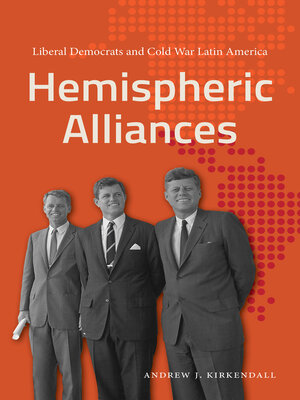
Sign up to save your library
With an OverDrive account, you can save your favorite libraries for at-a-glance information about availability. Find out more about OverDrive accounts.
Find this title in Libby, the library reading app by OverDrive.



Search for a digital library with this title
Title found at these libraries:
| Library Name | Distance |
|---|---|
| Loading... |
Hemispheric foreign policy has waxed and waned since the Mexican War, and the Cold War presented both extraordinary promises and dangerous threats to U.S.–Latin American cooperation. In Hemispheric Alliances, Andrew J. Kirkendall examines the strengths and weaknesses of new models for U.S.–Latin American relations created by liberal Democrats who came to the fore during the Kennedy administration and retained significant influence until the Reagan era. Rather than exerting ironfisted power in Latin America, liberal Democrats urged Washington to be a moral rather than a militaristic leader in hemispheric affairs.
Decolonization, President Eisenhower’s missteps in Latin America, and the Cuban Revolution all played key roles in the Kennedy administration’s Alliance for Progress, which liberal Democrats hailed as a new cornerstone for U.S.–Latin American foreign policy. During the Vietnam War era, liberal Democrats began to incorporate human rights more centrally into their agendas, using Latin America as the primary arena for these policies. During the long period of military dictatorship in much of Latin America and the Caribbean, liberal Democrats would see their policies dissolved by the Nixon, Reagan, and Bush administrations who favored militant containment of both communism and absolutism.
Decolonization, President Eisenhower’s missteps in Latin America, and the Cuban Revolution all played key roles in the Kennedy administration’s Alliance for Progress, which liberal Democrats hailed as a new cornerstone for U.S.–Latin American foreign policy. During the Vietnam War era, liberal Democrats began to incorporate human rights more centrally into their agendas, using Latin America as the primary arena for these policies. During the long period of military dictatorship in much of Latin America and the Caribbean, liberal Democrats would see their policies dissolved by the Nixon, Reagan, and Bush administrations who favored militant containment of both communism and absolutism.







